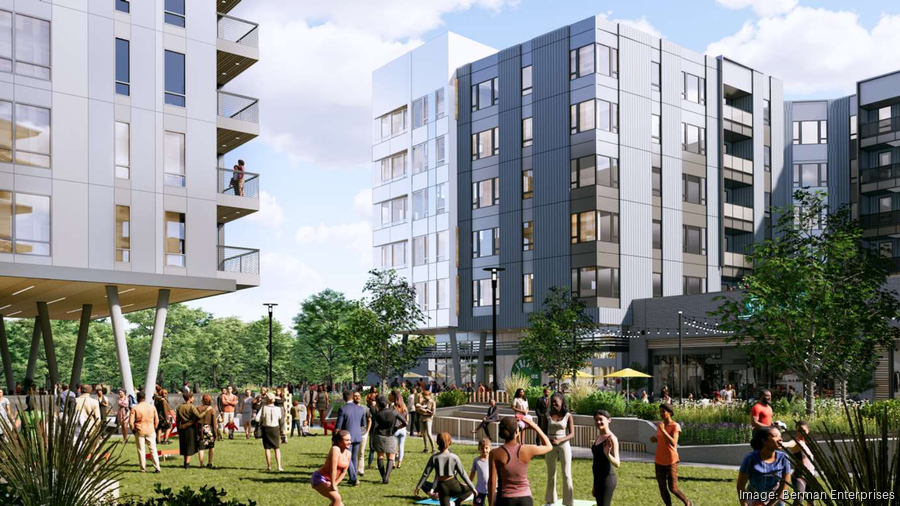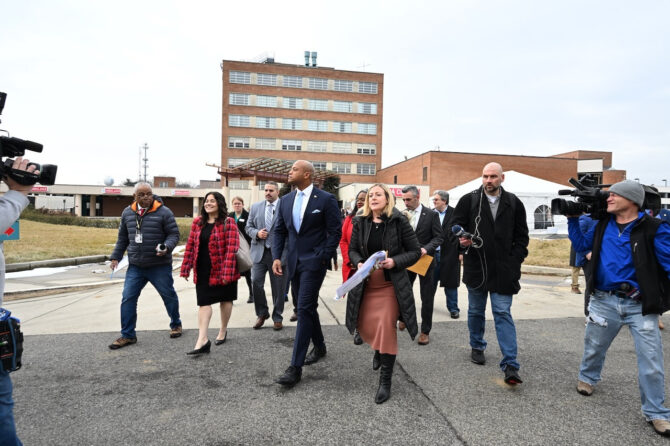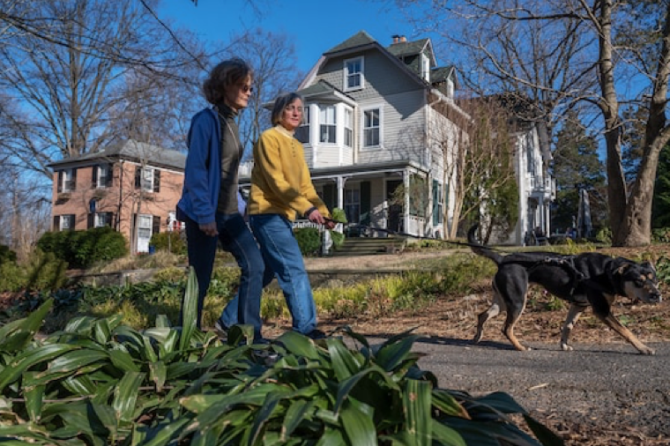WASHINGTON BUSINESS JOURNAL: Berman Enterprises won another key entitlement toward a big mixed-use development in Walker Mill, a project that planners hope will spur additional growth along a Metro corridor that Prince George’s County has long considered an economic development lynchpin.
The project, dubbed Glenwood Hills, envisions residential, retail and industrial components spread over 133 presently-wooded acres immediately south of Central Avenue, about two-thirds of a mile east of the Blue Line’s Addison Road Metro Station. The sitesits about midway between the Capital Beltway and D.C., and about a mile-and-a-half southwest of FedEx Field, where Prince George’s and Maryland are vying to keep the Washington Commanders.
Berman Enterprises won detailed site plan approval Jan. 4 from the county’s Planning Board for the first big installment of new development — 524 multifamily units and 49,000 square feet of retail, spread over two buildings fronting Central Avenue, plus another 126 townhomes and site infrastructure.
A future phase would include 775,000 square feet of industrial uses, spread across several buildings south of the now-approved residential buildings and west of Shady Glen Drive. Site drawings label the industrial buildings as “warehouse/distribution.” Though the county’s economic development agency also identifies Glenwood Hills as a potential site for data centers, a lucrative industry the county has been hungry to attract.
Andre Gingles of Gingles LLC, Berman’s land use attorney, told Planning Board members Thursday the project “could be a great catalyst for economic growth” along Central Avenue, “all the way down to the District line.”
Berman hasn’t returned requests for comment about anticipated project timeline and cost. A county spokesperson told me in an email the developer so far hasn’t requested any county incentives. Though it’s not uncommon at the end of the day for projects like this to get public help — county lawmakers in the past have granted developers sizable tax reductions, for instance, especially to spur growth in priority locations.
The Blue Line Corridor has long been a top economic development priority — “an opportunity to create the next big destination for the County and region — a dense, multi-modal, amenity-rich sports and entertainment destination,” according toCounty Executive Angela Alsobrooks’ 2021 economic development platform.
Berman, a multigenerational family firm, has been active in the region for years. It’s developed office around the New Carrollton Metro station, bought an office in Tysons for potential redevelopment and recently expanded its brokerage and advisory arm. The firms owns a portfolio totaling some 8 million square feet, including several asset types, according to its website.
Planning Board Chair Peter Shapiro called Glenwood Hills a “very significant project” at Thursday’s meeting, emphasizing the site’s nearness to a Metrorail station and adjacency to the Central Avenue Corridor Trail, a multiuse path planned to connect four Blue Line stations. He said he hopes the project serves as a “model” of development planning focused on multimodal transportation.
In June, county lawmakers formally kicked off a high-altitude land use planning process that will guide major future redevelopment along CentralAvenue, including Glenwood Hills and FedEx Field. Shapiro told me at the time that, whether the Commanders stay or go, FedEx Field has the potential to redevelop “at a scale that can be a regional attraction.” He said Garrett A. Morgan Boulevard, which starts about a mile east of Glenwood Hills and then extends north to FedExField, “may be the best opportunity for wholesale transformation along the Blue Line corridor,” second only to the Downtown Largo Metro station, the apple of the county’s transit-oriented development eye.
Gingles noted at Thursday’s meeting that economic development in Maryland has not advanced as quickly as some have hoped. He said “timing and the flexibility always remain very important factorsfor success,” adding that “we have had some concerns with how some of the entitlements are done, as well as some of the conditions,” though he didn’t expound. Real estate interests routinely lament that planning approval processes are too lengthy and costly.










